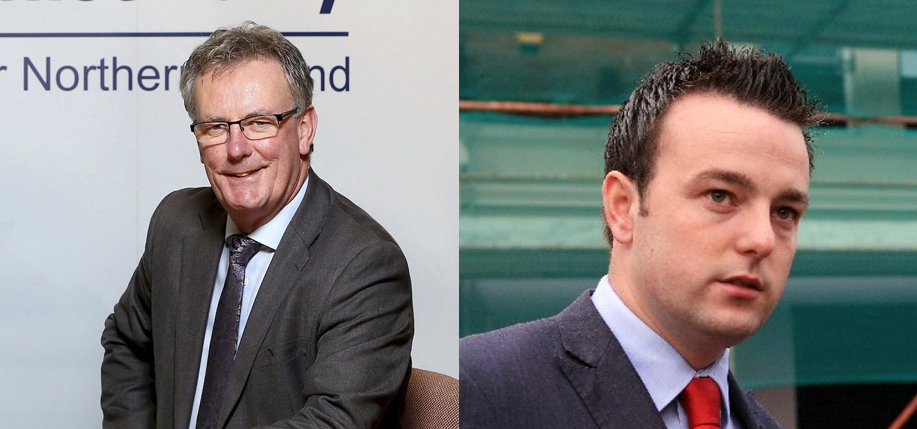An opposition government at Stormont is beginning to take shape after the Ulster Unionist Party (UUP) and the nationalist Social Democratic and Labour Party (SDLP) decided to opt for opposition rather than take part in the power-sharing executive after Arlene Foster of the Democratic Unionist Party and Sinn Féin’s Martin McGuinness were re-appointed as the assembly’s First and Deputy First Ministers in May.
It is the first opposition government in Northern Ireland since the Good Friday Agreement went into effect.
The UUP’s Mike Nesbitt (above left), citing the party’s new role as opposition said, “We have a job to do, because now we’re the only party holding the DUP and Sinn Féin’s feet to the fire to achieve a proper progressive program for government.”
Colum Eastwood (below left) of the SDLP agreed, stating, “we are going to work very, very hard to put forward alternatives to what the other parties have done and what they have failed to do.”
In theory, supporters of an opposition government say, the arrangement will allow for a more honest, accountable executive. In practice, however, according to its detractors, it could result in gridlock and the collapse of the executive and the power-sharing agreement outlined in the Good Friday Agreement.
Sinn Féin president Gerry Adams furthered that both opposition parties should have made their intentions clear during the recent election, and remained skeptical of the possibility for success.
“These were the two lead parties in government for nine years and they made a mess of it,” he told journalists in Belfast. “The political institutions were suspended twice and crashed twice.” ♦
N.I. Assembly Gets First Opposition Government


Leave a Reply